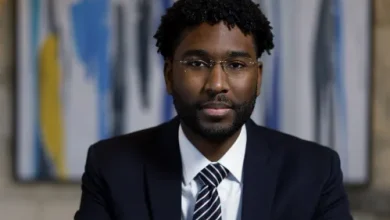Proposed PSLF Rule Could Strip Loan Forgiveness From Public Workers Serving Marginalized Communities


President Donald Trump’s administration is moving to overhaul the Public Service Loan Forgiveness (PSLF) program. The proposed changes, according to ABC News, could block debt relief for thousands of public and nonprofit workers, including those who work for organizations supporting immigrant communities, transgender youth, and diversity and inclusion efforts.
The Department of Education’s draft rule would allow officials to disqualify entire organizations from PSLF if they’re involved in so-called “illegal activities” the department has defined. Critics argue that the vague language used could become a political tool, particularly against groups focused on equity, identity, or civil rights.
“That’s definitely an indicator for me that this is politically motivated and perhaps will be used as a tool for political punishment,” Betsy Mayotte, president of the Institute of Student Loan Advisors and reviewer of the rule, said in an interview with ABC News.
What PSLF Was Designed To Do
Congress created PSLF in 2007 through the College Cost Reduction and Access Act. The program forgives federal student loans for public service workers after 10 years of qualifying payments.
So far, more than 1 million borrowers have received loan forgiveness through the program, according to Forbes.
But under Trump’s proposed student loan forgiveness changes, the Department of Education could remove organizations from the program based on a wide range of activities, including:
- Providing gender-affirming care to minors
- Offering services to undocumented immigrants
- Being linked to groups labeled as “terrorist organizations”
- Supporting diversity, equity, and inclusion (DEI) efforts flagged under civil rights law
These changes could prevent those working in public schools, legal aid nonprofits, health clinics, and even city governments from accessing the program’s benefits, depending on how officials classify their employers.
Who Could Lose Student Loan Forgiveness?
If passed, the rule could force workers to choose between staying in their jobs and giving up student loan forgiveness. It could also make whole hospital systems, nonprofits, or city agencies ineligible, even if only one department’s work is opposed by the administration.
“I could see entire cities and civil structures being targeted,” Alyssa Dobson, financial aid director at Slippery Rock University and a member of the federal rulemaking panel, told ABC News.
For Black Professionals, Student Loan Relief Is More Than Just Policy
For many professionals, PSLF has made public service financially sustainable, according to former President Joe Biden’s White House. Jobs in education, social work, health care, and legal aid often require graduate degrees, which can lead to significant debt. Loan forgiveness is a primary reason why professionals stay in these careers. And for Black professionals, public service has become a key source of “economic stability and upward mobility,” per National Public Pension Coalition.
Although the Department of Education states its goal is to ensure federal dollars aren’t supporting “unlawful conduct,” advocates say the policy is vague and open to abuse.
“There was a lot of ambiguity,” Emeka Oguh, CEO of student loan benefit provider PeopleJoy, who was part of the rulemaking panel, told ABC News. He warned that the rule, if applied too broadly, could worsen staffing shortages in critical fields like health care and education.
What’s Next?
The Department of Education is drafting a formal version of the rule and plans to open it for public comment before finalizing it. If approved, the rule could take effect as soon as July 2026, according to ABC News.




